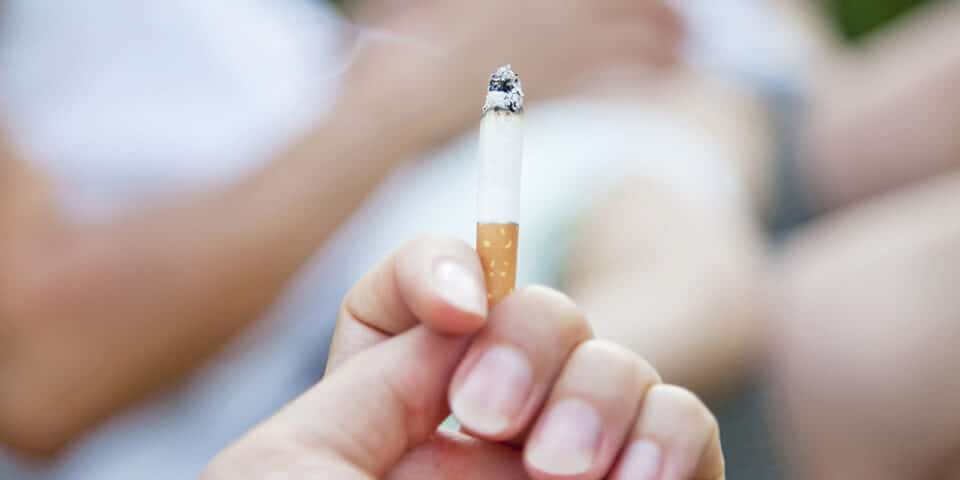Why exposure to secondhand and thirdhand smoke is harmful
If you live in a house with a smoker, you’re probably being exposed to secondhand and thirdhand smoke. Pulmonologist Rohan Arya, MD, explained why exposure to secondhand and thirdhand smoke is harmful and what you can do to reduce the risk to your health.
What is secondhand and thirdhand smoke?
“Secondhand smoke is the smoke you inhale from a smoldering cigarette or the smoke that the smoker exhales after taking a draw from the cigarette,” Dr. Arya explained. “Both expose people to the chemicals in the cigarettes that cause cancer.”
Thirdhand smoke refers to the leftover chemicals and compounds that are in the room after the smoking activity is done.
“Those particles land on surfaces such as walls, floors, bedding, clothing – and they don’t necessarily degenerate and go away,” Dr. Arya said. “They will stay there. So, when people come in later and start touching these surfaces, their skin is exposed to all those chemicals, and the skin can easily absorb them.”
Can secondhand and thirdhand smoke increase your risk of health problems?
According to the National Institutes of Health, secondhand smoke increases lung cancer risk among nonsmokers by 20% and causes approximately 53,800 deaths a year in the U.S.
Dr. Arya said your risk of lung cancer depends on the level of your exposure. “Your risk of lung cancer depends on the duration and quantity of tobacco you’re passively inhaling. Sitting in a closed room all day with someone who’s smoking can be a pretty intense exposure.”
Secondhand smoke can also cause other issues, such as coronary heart disease and stroke in adults, according to the Centers for Disease Control and Prevention. In children, it can increase the risk for sudden infant death syndrome (SIDS), pneumonia, bronchitis, middle ear disease, severe asthma and slowed lung growth.
Thirdhand smoke is a little different. It’s seen as a potential danger, especially to children who crawl on floors or furniture and then ingest the residue on their hands.
“We don’t know if this type of smoke will lead to an increased risk in cancer, but we do know it can lead to other health issues,” Dr. Arya said.
How can you protect yourself from exposure to secondhand and thirdhand smoke?
Many people are exposed to secondhand and thirdhand smoke in their homes, so helping smokers quit is important.
Smokefree policies and laws also protect people from the dangers of secondhand smoke exposure.
Find the care you need, close to home
Our primary care physicians provide well visits and everyday care when you need it with compassion and expertise.
Find Primary Care Near You

